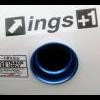Search the Community
Showing results for tags 'Traders'.
-
The Motor Traders Association could soon be the Minor Traders Association if the number of members keeps falling. The Motor Traders Association of Singapore (MTA) is a grouping of new car distributors and some commercial vehicle dealers. Its membership has been sliding over the years and the latest to leave its fold is Borneo Motors Singapore (BMS) - the distributor of Toyota, Lexus and Hino - leaving it with 26 members. With BMS's exit at the end of this month, Singapore's top three brands - Mercedes-Benz, BMW and Toyota, in that order - will not be part of the MTA. Critics now question how MTA can continue to be relevant. "MTA is supposed to be the voice of new car sellers. What is the point if it does not represent the majority of the industry," asked the director of a brand who left MTA a few years ago. Based on last year's total vehicle sales of 34,090 units, MTA members accounted for 46 per cent of total market share (this number is made up of 22,472 new cars, 8,128 commercial vehicles and 3,490 taxis). If BMS sales are excluded, this proportion drops to 32 per cent, or barely a third of the market. Volkswagen will then be the biggest brand left in MTA. Last year, VW was Singapore's No 4 make. BMS declined to comment when contacted. But there is speculation that its departure is largely symbolic, one that signals its displeasure with the association. "The annual membership fee is only $1,500, so it's definitely not about the money," said the head of a luxury dealership. "It is probably to make it clear that they do not see the value of MTA membership." In recent months, some complaints about the MTA included how it appears to champion the causes of only its committee members, and the inability to present members' views and appeals to the government, especially after the recent radical changes to the motor trade, such as the loan curbs and certificate of entitlement tweaks. The luxury dealership head recalled that when the vehicle financing restrictions were introduced last year in February, the Singapore Vehicles Traders Association, or SVTA, whose members are mainly used car dealers, immediately met to craft an appeal to the government. The result was the lifting of loan curbs for 60 days to allow members to clear their stocks of second-hand vehicles. But, according to the luxury dealership head, the MTA was reluctant to intercede when approached by some members for help to lobby the government to soften the impact of the loan curbs. Senior MTA committee members could not be contacted for their views. But one industry veteran defended the MTA. "To be fair, it does not have an easy time," he said, explaining that this is because MTA members have conflicting interests. "It is difficult to function as a cohesive organisation because not every brand is impacted by the same issues, such as engine output or emissions," he added. "So there is no unified voice, unlike used car dealers who do not have brand loyalty and can talk about common problems such as policy and financing as a group." Source: http://www.businesstimes.com.sg/premium/top-stories/toyota-distributor-borneo-quits-motor-traders-body-20140319
- 210 replies
-
- 4
-

-
- borneo motors
- toyota
-
(and 6 more)
Tagged with:
-
Share traders calling it a day as market volume dries up Average net commission on the decline, slumping to about S$1,000 from around S$6,000 to S$8,000 a decade ago By Kenneth Lim [email protected] 23 Oct5:50 AM Singapore KISHORE Rochey was a trading representative for 20 years before calling it quits in September this year. He said that the average net commission earned by his peers has been on the decline, with through-the-grapevine estimates falling from around S$6,000 to S$8,000 a decade ago to about S$1,000 when he left. "It made no sense to stay around." Mr Rochey's story is not unique. Market liquidity in Singapore is at a multi-year low, commissions are suffering and many in the industry are either looking for other sources of income or simply moving on. While many in the industry acknowledge macroeconomic effects in the market, they also blame regulations that have raised the costs for speculative traders and cut spreads and commissions for trading representatives. In response, Singapore Exchange (SGX) stressed that it cannot jeopardise long-term market quality for short-term liquidity droughts, and noted that it has taken several initiatives aimed at helping the industry. The numbers do not paint a pretty picture. Market turnover fell 21 per cent in the financial year ended June 30, 2014, to S$286 billion, according to SGX. That is the lowest turnover since fiscal 2006, when the size of the total market was less than what it is worth today. Looking at turnover as a proportion of market capitalisation, the average turnover velocity in FY2014 was just 40 per cent, compared to 71 per cent back in FY2007 (view infographic). UOB-Kay Hian Holdings posted a 31.8 per cent decrease in first-half commission income this year, to S$113 million. DBS Group Holdings' brokerage income for the first half of 2014 fell 29 per cent to S$85 million. OCBC Bank matched DBS's decline, with brokerage income dropping to S$26 million. An executive at a brokerage who deals with remisiers said that the number of trading representatives in Singapore has fallen to about 3,900 in 2013 from more than 4,300 in 2011. Jimmy Ho, president of the Society of Remisiers of Singapore, remarked: "I quote one remisier who's been in the industry for over 40 years, and he said it's never been like this before." Those who are still in the game are looking for other ways to make a buck. Mr Rochey noted that some brokerages are encouraging their remisiers to help refer their clients to specialists of other products and asset classes such as contracts for difference and forex. "But at the end of the day, when the commissions are so low . . . there's just not enough meat," Mr Rochey said. A trader who has since moved to another part of the desk said that investors are also looking to overseas markets for more action. Emerging markets such as Thailand, for example, offer more inefficiencies that investors are better able to capture, he said. "You have to look to where the money is," the trader said. "Thailand, Hong Kong, Indonesia, even the US, where the volatility is there. If you're talking about money flow, in South-east Asia, you don't have to look that far beyond Thailand and Indonesia." Industry veterans cited a number of factors for the industry's current woes. The first, and most obvious, is that equity trading volumes across the world have not been great ever since the Global Financial Crisis. "From 2009 until now, the market has gone out, so people don't have the courage to come in big time," Mr Rochey said. "You need a whole new breed of investors to come in and create the volume, who didn't experience the pain of 2008 and 2009. That will take a decade." Singapore has been hit especially hard because of the penny stock collapse that began in October 2013 and continues to weigh on small and mid-cap counters. But the industry said that regulations, some of which were in response to the penny meltdown, have made it hard for the market to recover from that hit. The trading executive said that SGX's removal of its S$600 clearing-fee cap in June has crimped large-volume day trades. "Now the clearing fee has no cap, so it's very expensive for them to trade," the executive said. "Low liquidity and volumes mean it's also hard for them to trade more, and the bid-ask size is smaller now, so for them to make money from day trading is very hard." Mr Ho said that proposed rule changes such as the shortening of the settlement period to two days from three days and the requirement for brokerages to collect collateral will suppress the liquidity provided by contra trading. Contra trading refers to the practice of taking and unwinding positions without collateral within the settlement period. "If you ask for margin, that's operating like a bank," Mr Ho said. "Any exchange doesn't operate this way, because any exchange must combine the speculative and fundamental elements. If you take out the speculative element, the market won't function." But SGX is adamant that some of those rules being complained about actually improve market quality, and changing them to address what it views as a short-term liquidity downturn would be myopic. "Yes, from an exchange perspective and from my perspective, I'd like to have higher turnover," chief executive Magnus Bocker said. "But the question is, I'm here to long-term service the investors, I'm here to protect the retail investors and the institutional investors, I'm here to protect the integrity of the market, I'm here to support that we can raise money for companies." Mr Bocker also argued that although liquidity is thin at the moment, other aspects of the market, such as ease of capital raising for issuers and the costs for investors are still robust. Programmes that incentivise market makers and liquidity providers are also showing early success. "If you go back and say it's not so good, I would say the three important functions of the equity market work well," Mr Bocker said. Mr Rochey, who said that he now makes more as a private investor, felt that brokerages should also be more aggressive in incentivising volumes. Graduated takes of commissions, where a remisier's share of commissions is stepped up if the remisier's volume crosses a threshold, should be utilised more, he said. "If the broking houses want to revive the industry . . . share more of the profit." The trader said that the market situation is unlikely to improve for the rest of the year. "In two weeks' time, we're into the month of November, and for the European and US funds, this is fund closure time for them . . . The market will get quieter."* http://www.businesstimes.com.sg/stocks/share-traders-calling-it-a-day-as-market-volume-dries-up#xtor=CS1-5
- 21 replies
-
The Singapore Vehicle Traders Association (SVTA) clarified today (Oct 21) that of the 2,438 motor vehicle complaints reported by the Straits Times on Saturday, only 1,084 were related to defective goods. The article — “Grouses about car dealers speeding up” — stated that the 2,438 complaints the Consumers Association of Singapore (CASE) received from January to September this year has exceeded the 2,255 made in the whole of last year. SVTA President Neo Tian Ting explained that the figure of 2,438 also includes enquiries and feedback, which do not require CASE to take action. Mr Neo also said that the spike in complaints this year can be attributed to the lemon law, which came into effect last September. Consumers, he said, could be contacting CASE more often as there is a misunderstanding of the lemon law. In fact, only 156 were filed and assisted cases pursued against SVTA members in relation to the lemon law and other complaints such as delays in delivery and misrepresentation — meaning CASE handled claims on the consumers’ behalf or assisted the consumers in drafting letters to approach the vendors themselves. Singapore has about 800 to 900 car dealers. About 410 of them are SVTA members. Source: http://www.todayonline.com/singapore/only-1-2-complaints-against-car-traders-were-about-lemons-svta
- 21 replies
-
- Only
- complaints
- (and 6 more)
-
Sky-high certificate of entitlement (COE) prices for commercial vehicles have become a worry for businesses, motor traders and the authorities. Premiums for vans, trucks and buses have been setting record after record in recent months. Now at $76,001, it has more than doubled its price since 2011 - chalking the biggest rise among all COE categories in the two years. The motor industry attributes the climb to three factors. First, there has been a construction boom that is driving demand for heavy vehicles such as concrete carriers and dump trucks. According to Mr Ron Lim, general manager of Nissan agent Tan Chong Motor, heavy vehicles now make up more than 50 per cent of commercial vehicle sales - up from the usual 20 per cent. Second, motor dealers are clearing existing stock ahead of a new emission standard that kicks in on Jan 1. Third, speculators may be hoarding COEs in the hope of turning a profit by reselling them to motor dealers stuck with stock as the new year draws nearer. Said Mr Lim: "If there is speculation, the Government should step in quickly to address the situation. Or consider a three- to six-month extension to the emission deadline. This should quell all speculative activities." The Land Transport Authority (LTA) said it is hard to detect speculative activities. But it added that there are deterrents in place, such as a shorter three-month validity period for commercial COEs, half that of car certificates. Still, an LTA spokesman said it is looking at ways to improve the system, including putting light and heavy commercial vehicles in separate categories. Buyers of the latter are better able to tolerate high COE prices since heavy vehicles are far costlier. Transport Minister Lui Tuck Yew told Parliament in March that the Government "will study carefully" if buyers of "light goods vehicles should pay the same COE premium as heavy and very heavy goods vehicles". Small and medium-sized businesses hope something will be done soon. Association of Small and Medium Enterprises president Chan Chong Beng said that the issue of high vehicle costs has overtaken labour shortage as the top concern raised by members. "For many small businesses, a vehicle is a must... And because of the new emission standard, prices will continue to rise next year, and that's very, very scary." Vehicle cost will account for a bigger cost component for businesses, Mr Chan added. "Many, like hawkers, will find it hard to pass it on to consumers." He said having separate COE categories for light and heavy vehicles would be "a good solution". Ms Ivy Tao, 54, who runs a fleet of buses ferrying workers, said she has no choice but to delay replacing her older vehicles. "COEs are high, fuel prices are high. We don't feel secure any more." LTA said businesses can consider extending their expiring COEs - by paying a prevailing quota premium - by five years, which they can do twice now since a restriction was lifted in February. Previously, these COEs could either be extended by five or 10 years. Owners who chose the former had to scrap their vehicles at the end of their extension. Since the policy change, LTA said about 96 per cent of commercial COE renewals have been for five years, up from 57. Source: http://www.stasiareport.com/breaking-news/singapore/story/businesses-motor-traders-authorities-worry-over-soaring-coe-cost-20131
-
133 traders in all around 20 banks is involved and 3/4 has resigned or ask to leave. 19 Banks are now to set aside reserves by end of this month for the traders action, some bank need to set aside as high as 1billion. Looks like this year bankers will not get good bonus due to so much opportunity cost lost and also large amount of $ taken out to put into reserves. http://www.channelnewsasia.com/news/singap...nks/710364.html
-
http://www.reuters.com/article/2013/02/28/...mp;dlvrit=56943 are these 2 FTs? Mukesh Kumar Chhaganlal and Prashan Parmeshwar Sunny Miripuri. Outstanding. Fired still throw lawsuit...
-
Hi, Going for a short trip to kuala lumpur next month... Any mcfers ever stay at this hotel? What's the review? Thanks
-
The Competition Commission of Singapore (CCS) is taking 13 motor vehicle traders to task for anti-competitive actions. In a statement on Thursday afternoon, the Commission accused the traders of contravening the Competition Act. The group was said to have engaged in an anti-competitive agreement to suppress bids at public auctions of motor vehicles. The CCS said that the infringing conduct involved bid-rigging through an agreement to suppress bids at these auctions, which has the "object of preventing, restricting or distorting competition". Source: http://www.straitstimes.com/breaking-news/...ctions-20120906
-
Good news for all! The CaseTrust-SVTA scheme is going to be officially launched from 1st July onwards - I just attended the press conference this morning. Anyway, Christopher Tan from ST has already posted the write-up online here, and I've put it in this post for all of you to reference from. ----- June 24, 2009 CASETRUST SCHEME 39 motor traders join By Christopher Tan SENIOR CORRESPONDENT Case president Yeo Guat Kwang said the scheme is not bent on dispute settlement, but is one that is 'dispute-avoidance'. -- PHOTO: BT THE motor industry, which accounts for the second highest number of consumer complaints here, has launched a scheme to lead car buyers to trustworthy dealers and away from the 'black sheep'. From July, buyers can zoom in on 39 firms in the so-called CaseTrust scheme started by the Consumers Association of Singapore (Case) and the Singapore Vehicle Traders Association (SVTA). The cohort represents about 5 per cent of all authorised distributors, parallel importers and used car traders here. The 39 were among 66 which applied to be accredited but did not meet the requirements. These include having in place a transparent and fair buyer's agreement and an insurance bond of $50,000 which will be used to settle any customer disputes that might arise. But Case president Yeo Guat Kwang said the scheme is not bent on dispute settlement, but is one that is 'dispute-avoidance'. But should disputes arise, the CaseTrust programme has a mediation process in place. It will be chaired by five members, including Mr Dennis Lim, a former magistrate. SVTA president Neo Nam Heng hopes all motor traders will strive to join the CaseTrust scheme. The first 39 firms, largely parallel importers, are: # Acfas Auto; # Alfa Credit; # Apricar; # Autopoint Motoring; # Autorich; # BKW Automobiles; # Car Times Automobile; # Cars & Stars; # Chai Giap Auto Trading; # Chicago Associates; # Convince Auto; # Good Year Automobile; # Hoe Beng Auto Trading; # Lake View Credit; # Lay Auto; # M9 Automobile; # Mayfair Motoring; # Motor-East; # Motor-way; # Omnicars Automobile; # Pang's Motor Trading; # Prime Cars Credit; # Prime Motor & Leasing; # RTMT Motor; # Shuang Hup Credit; # Starbright Auto; # Swee Seng Motors; # Tan Motor Car Enterprises; # Tan Wei Auto Trading; # Tay Motor & Credit; # Teck Wei Credit; # Thiam Heng Motor; # Think One Automobile & Trading; # Village Credit; # Vincar; # World of Wheels; # Yong Chuan Motor Trading; # Yong Lee Seng Motor; # Yuni-Ku ---- Just a curious question, how do you all feel about this CaseTrust-SVTA scheme? Do you all feel more assured? Any issues with any of the traders listed here (please do not name names, just comment only)?
-
Hi am just curious and just wanna find out more about oil traders. I've heard a lot but its still a bit grey to me. Best if there's someone here who is an oil trader can shed some light. 1. To get a job is strictly based on 'connection' with people you know inside ? 2. Very well paid? 3. Once you're in you can stay in there forever? 4. Based in oversea?
-
Get the car while you can ... COE prices on the rise, and they're likely to get higher Loh Chee Kong [email protected] OWNING that car could become more expensive in the coming months. . In the latest certificate of entitlement (COE) tender, premiums continued to soar across all categories of vehicles
-
In case you are interested: http://www.whatshappening.sg/events/index....th=12&year=2006






